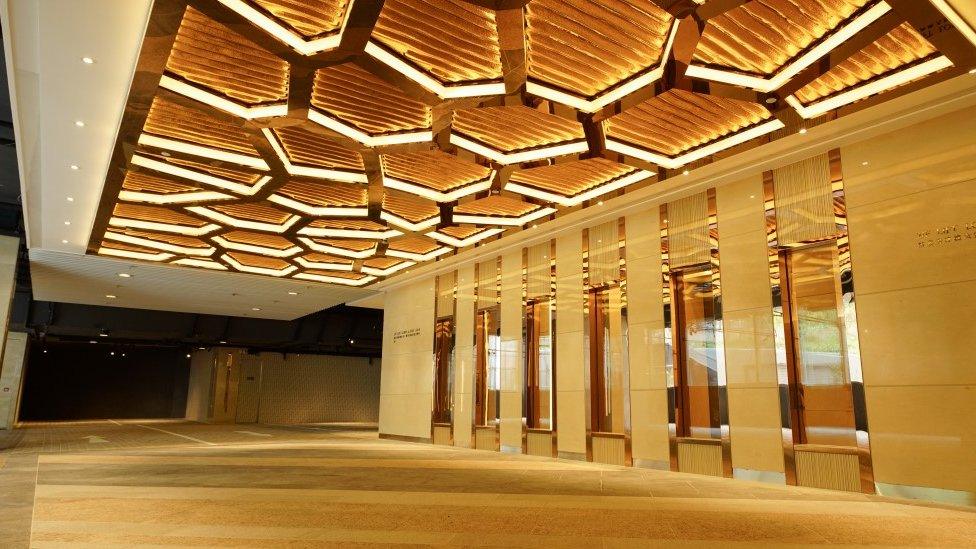People in the US use car parking spaces for offices
- Published
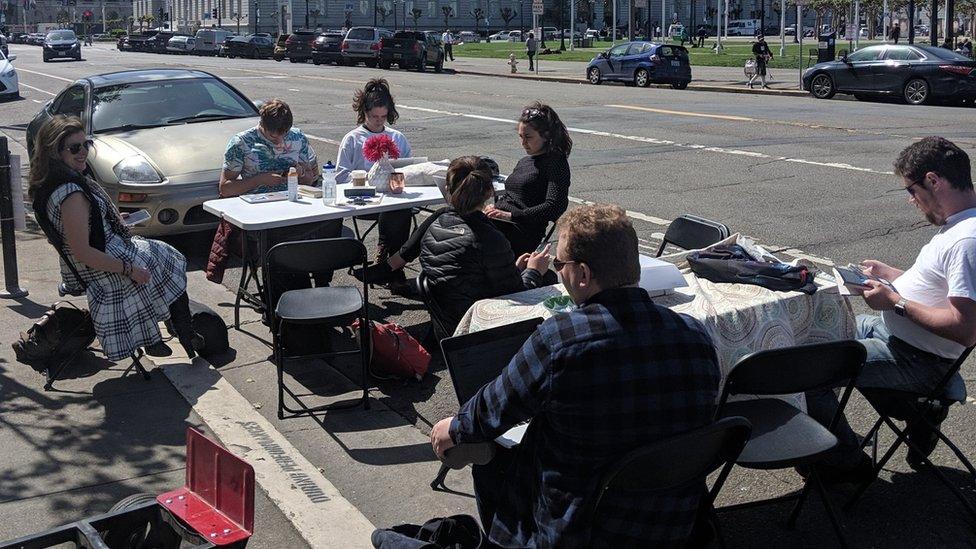
People are paying for parking spots and installing desks outside
People in the US are occupying parking spaces to show alternative ways of using them.
People have been posting images of themselves using the hashtag #WePark showing themselves working in car parking spaces in San Francisco.
The group pays for the space and creates makeshift offices, using Wi-Fi from free internet zones or by using their mobile phones as hotspots.
The movement has since spread further afield to France.
WePark was started by Victor Pontis after he set up a desk in a parking space last week.
The entrepreneur told the BBC that the idea for WePark came from Twitter.
"Somebody posted a photo of a truck that someone set up with bike parking on it and somebody mentioned 'What if you could work out of a parking spot?' I thought it was a pretty funny idea and I decided to do it last Thursday," he said.
After his successful test, he decided to invite others to join him at a spot near San Francisco's City Hall. Around 30 people turned up throughout the day.
He said: "I think it's saying that we have prime real estate in our city and some of the nicest areas with the most sun and really close to transit or close to a park or close to a lot of shops and right now we're using that for street parking and charging either $3 or $2 an hour and there are a lot of other uses for that.
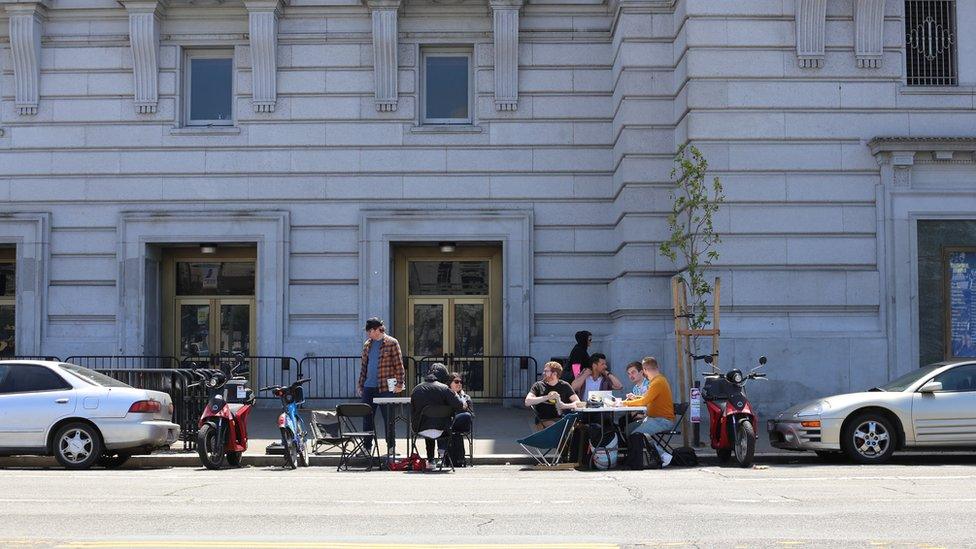
Mr Pontis said around 30 people joined throughout the day
"The streets are places where people are living and not just depositing cars."
Community feel
Jean Walsh among those who joined the first official WePark. She told the BBC that it helps highlight the ways in which car parking spaces could be utilised in the city.
"We live in a very expensive real estate market. It's just so crazy to think the way we use our street is not reflective of that and so those parking spaces are just dirt cheap compared to all of the other real estate in San Francisco.
"So it's fun to shine a spotlight on that and look at why we would allow this to be used for a giant metal box all day when we could have people playing here, it could be a park, it could be a bike lane or a pick-up drop-off area."
According to Cushman & Wakefield, a US commercial real estate company, rent in San Francisco's CBD has rocketed to a record $84.16 per square foot - up 9.7% year on year.
Ms Walsh said the working space had a community feel.
She said: "It was great. Everybody had access and were sitting there working. It was lovely. Someone brought doughnuts, a vase, flowers and a table cloth. I think it's going to be even more fun and advanced next time. You have 12 people working out of a space instead of a vehicle just sitting there doing nothing all day. It's a great use of space."
Changing mindsets
The movement has already spread to France where 21-year-old Valentin Décarpentrie set up his own office in a Toulouse parking space.
After finding out about WePark on Twitter, he says he "decided to follow the movement" and duplicate it. He said that one person wanted to park in the space but left after seeing Mr Décarpentrie's parking ticket.
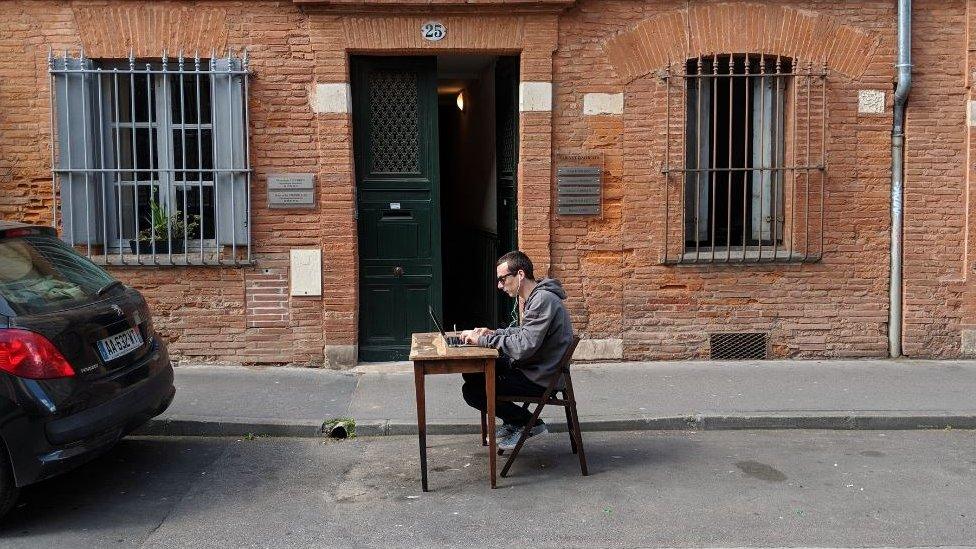
Valentin Décarpentrie set up his own office in a Toulouse parking space
The entrepreneur says he thinks the idea will continue "because it has already gone international and mindsets are changing about global warming."
He said: "People are starting to act and this is a cheap way to do it."
"Office spaces are expensive and here in France if your company is less than one year old, no one wants to rent you anything, even with warranties. But that's not the real problem, because working remotely is a perfect alternative. The other real problem is the cities that just don't do anything to reduce the polluting cars' activity."
It's not the first time campaigners have tried to take control of parking spaces in their area. Brenda Puech filled a car parking space in London with plants and chairs in a bid to make a space for the community.
She was evicted from her mini-park, according to the Hackney Gazette. However because of its popularity, people in Hackney were able to apply for a permit to open their own mini-park under a trial scheme.
- Published18 September 2018
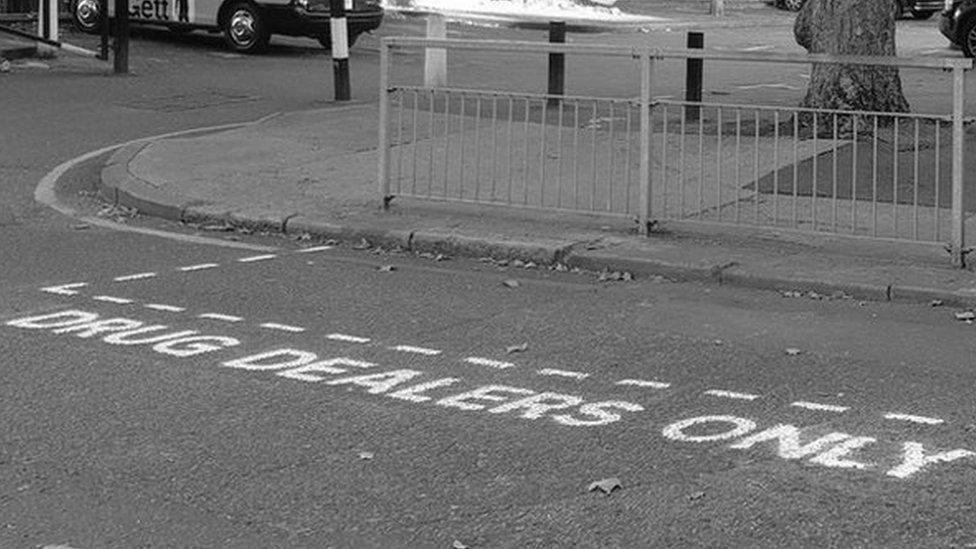
- Published28 October 2016
